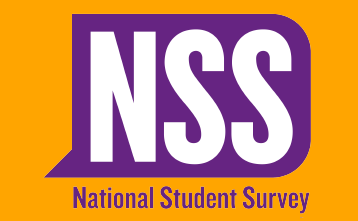Most academics and researcher development professionals will tell you that when applying for teaching fellowships, postdoctoral research positions, and lectureships, one of the key things to do before you even start writing your application is to research the department to which you’re applying. What are their research strengths and gaps? What does their undergraduate and postgraduate provision look like? What kinds of external collaborations, public engagement, and impact activities are going on? All this, and more, will help you understand what kind of candidate they are likely to be looking for, and allow you to present your skills, experience, and plans in a strategically advantageous way. As part of this preparation for your application, and particularly for you interview, there are three things all applicants can easily do to show they know the state of play.
1. Check the last Research Excellence Framework (REF) submission.
Few applicants seem to take the opportunity to go beyond institutional websites and actually read up on a department’s last REF submission. On the REF2014 website, you can access the submission documents of each Unit of Assessment (UoA) at each university (providing, of course, they did actually submit). These documents include:
 research groups (if any were identified);
research groups (if any were identified);- staff members whose work was returned;
- the research outputs that were submitted;
- the impact template and individual case studies submitted;
- and the research environment narrative and data.
All of these can be interesting in their own right, but if you’re pressed for time then the impact template and the environment narrative and data should be your go-to documents. Impact has become a key factor of the Research Excellence Framework and is here to stay, so knowing how your work might fit into a departments existing impact work can be a valuable asset, and might give you ideas for future plans on how you might realise the impact potential of your work.
The environment data and narrative give you a good idea – at least within the confines set by REF – of how a department sees itself and, importantly, what their plans for the next or current period leading up to the next REF are. This document will include information on how many conferences have been organised and held at the department, what external esteem activities staff are engaged in (e.g. peer reviewing, keynotes, etc.), what the department’s postgraduate provision and recruitment looks like, and where the department’s strategic focus will lie in the next few years. The data section shows you how much external grant income the department has generated.
To access a department’s submission, simply click on this link, select the UoA, and then select the university.
2. Check their undergraduate and postgraduate programme details.

If the post for which you’re applying includes teaching duties, then this should be one of the first things you do when preparing your application or interview. The information about a department’s programmes should be on their institutional website, including at least an indicative list of modules at each level, entry tariffs, and a narrative about what makes each programme distinctive. Knowing this information allows you to see where you would fit in with your teaching experience and expertise. Does the job advert specify which modules you would be expected to teach? If so, find out about them and make a case for why you have the required skills to take them on. Sometimes, if you are shortlisted, you might be given the handbook for a module you’re expected to lead or revamp or contribute to, and asked to consider what you would change or contribute. If the job ad suggests you will be expected to write and contribute your own module in your field of expertise, then don’t simply prepare details of what makes your module innovative and great, but also think about how it links up with, complements, or fills gap in the current provision. For example, are there gender focused modules at Level 4 and Level 5, but none at Level 6, you might want to argue that your new module will complete a pathway through the levels. Equally, if there are obvious period or theme gaps in the programme, consider how your work might fill them. Are there any types of assessment that are underrepresented or is there a particular focus on employability that your work taps into?
3. Check their teaching statistics.
In the UK, teaching is constantly (and controversially) reviewed and assessed, even more so now that we’ve got the Teaching Excellence Framework (TEF). If you are applying for a job that includes teaching, then you should certainly read up on the TEF and its likely future. For example, in its first iteration the TEF results were awarded institutionally – that is, the result applies to the whole university, and there are no individual department results. this is almost certainly set to change in the future.
At the moment, though, you should also make you check out programme-specific and department-specific statistics. The National Student Survey (NSS) is conducted annually and asks final-year undergraduates about how satisfied they are with: the teaching on their course; learning opportunities; assessment and feedback; academic support; organisation and management; learning resources; learning community; student voice; and the students’ union.
The easiest way to check programme-specific NSS results is via the Key Information Set (KIS), provided by Unistats. It’s easy: visit the Unistats website, and enter the course (e.g.

English) and institution in the search boxes. What you’ll see is a list of the single and joint honours courses offered at your chosen institution. To see the statistics, click on the course you’re looking for. What you’ll see is an overview of a wide range of statistics, including accommodation costs, graduates’ employment destinations, and so on. If you click on the “Student Satisfaction” tab, you’ll see the statistics gathered by the NSS for this course. Of course, every year, once the NSS results have been released and dismantled, many departments publish their results on their websites, so it’s worth checking there, too.
And now what … ?
It probably won’t make a great impression if you identify all of a department’s weaknesses on paper and list them in your interview or application, billing yourself as the saviour of a sinking ship. Remember, academia is often rightfully critical of how its performances in teaching and research are assessed, and statistics are never the full story. Neither are REF narratives, written within tightly defined parameters. Your research on a department and university should inform more subtly how you, your work, experience, and skills might fit with what is already being provided, how they might help address gaps or weaknesses that have been identified, and how they will complement existing strengths and activities. Remember: there is no point in bending your profile completely out of shape just to fit a job spec or what you think a department is looking for. If your claims are contrived, it will show. Instead, try to use your knowledge to strategically present yourself, and to show that you know who you’re addressing in an application or interview. Remember also that what stats and details you check , quote, and show awareness of should depend very much on the type of post for which you’re applying. If you spend pages or minutes talking about how your research profile and plans fit with a departments trajectory as specified in their REF submission, but you’re being interviewed for a fixed-term teaching post, then it may look like you’re not really aware of what the post entails.
There are, of course, many more, and I’m sure other will happily chip in with other advice and recommendations, so make sure you read the comments and check back on Twitter for more tips.
Good luck!
A great post! 3 more tips from me :
*Look at the Corporate Strategy or Development Plan for the University in question. (They ALL have one!) This will outline what the Institutional ambitions are and some insight into the expectations in terms of research income and outputs being put on departments. Showing an awareness of this at interview will help you stand out!
*Research opportunities for funding out there you might be eligible to apply for if research is an aspect of the post. (Research Councils, British Academy, Royal Society, Leverhulme Trust, NHS, Charities etc.) Departments have a lot of pressure from ‘upstairs’ to apply for and win external funding. If you have some credible plans that might contribute to this you will again stand out.
*Find out what institutional awards the HEI has that show its commitment to developing and supporting staff. (Athena SWAN for Gender Diversity, HR Excellence in Research Award for supporting ECR’s, DORA statement on Responsible Metrics etc etc.) If they have some of these it can show your potential employer is serious about supporting staff and is a good place to work and establish yourself. Don’t be afraid to ask an interview what support there is for staff development and training. Do you WANT to work there if they can’t answer this?